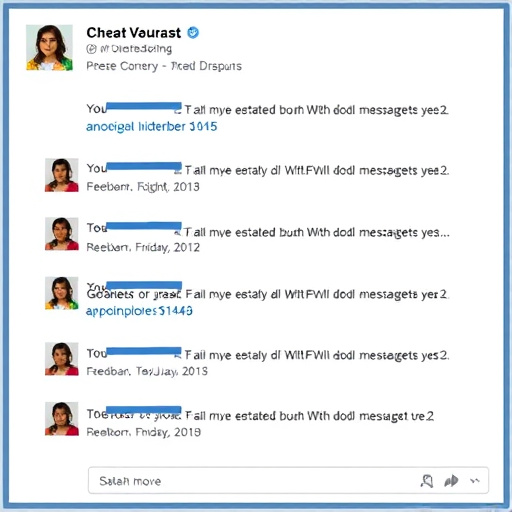Review Online Queensland: A Comprehensive Analysis
Introduction
In an era defined by digital transformation, ‘Review Online Queensland’ (ROQ) has emerged as a pivotal concept, reshaping the way we perceive and engage with online services in Australia’s vibrant and diverse state of Queensland. This comprehensive review delves into every facet of ROQ, offering insights for policymakers, businesses, and residents alike. By exploring its definition, impact, economic implications, technological innovations, regulatory framework, challenges, and future prospects, this article aims to provide a holistic understanding of ROQ and its significance in the global digital landscape.
Understanding Review Online Queensland: Definition and Core Components
Review Online Queensland (ROQ) is an annual, independent assessment of the online services and digital infrastructure provided by Queensland-based government departments, public service agencies, and critical private sector entities. It evaluates the accessibility, usability, performance, security, and innovation of these online platforms, with a focus on their impact on citizens’ daily lives and business operations.
The core components of ROQ include:
- Online Service Quality: Assessing the overall user experience, including website design, navigation, speed, and responsiveness.
- Digital Accessibility: Ensuring that online services are usable by individuals with disabilities, adhering to accessibility standards.
- Security and Privacy: Evaluating measures to protect user data, prevent cyberattacks, and maintain privacy.
- Performance Metrics: Monitoring key performance indicators (KPIs) such as load times, uptime, and page view durations.
- Innovation and Adaptability: Recognizing the adoption of new technologies and their positive impact on service delivery.
- Public Engagement and Feedback: Incorporating citizen feedback to gauge satisfaction and identify areas for improvement.
Historical Context and Significance
ROQ has its roots in Queensland’s growing recognition of the importance of digital services in modern governance and business. The state, known for its vibrant economy and diverse population, sought to enhance its online presence to keep pace with global trends. The initial reviews, conducted in collaboration with industry experts and citizens, provided a benchmark for improvement and set a precedent for continuous evaluation.
Over time, ROQ has evolved from a simple rating system to a comprehensive framework that drives strategic decision-making. Its significance lies in several key areas:
- Improving Public Services: ROQ highlights areas where government departments can enhance their online services, leading to better citizen engagement and satisfaction.
- Fostering Business Growth: By encouraging digital innovation, ROQ supports Queensland’s thriving business community, particularly startups and small enterprises, in their online endeavors.
- Promoting Digital Inclusion: The review pays special attention to accessibility, ensuring that digital services are inclusive and beneficial to all residents, regardless of abilities or backgrounds.
- Attracting Global Talent: A robust digital infrastructure, as assessed by ROQ, can attract tech talent and international businesses, contributing to Queensland’s economic diversification.
Global Impact and Trends
ROQ’s influence extends far beyond Queensland’s borders, as the concepts it promotes resonate globally. Internationally, there is a growing emphasis on digital transformation, with governments and organizations worldwide adopting similar review frameworks to improve online services.
Key global trends shaping ROQ’s trajectory include:
- Digital Government Initiatives: Many countries are following the lead of advanced digital government models, aiming to streamline services and engage citizens through online platforms.
- Open Data and Transparency: There is a rising demand for open data access, as citizens seek transparency and accountability from their governments. ROQ’s emphasis on performance metrics contributes to this trend.
- Cyber Security Focus: With increasing cyber threats, governments worldwide are investing in robust security measures, aligning with ROQ’s security and privacy component.
- User Experience (UX) Design: UX design is becoming a critical differentiator for digital services, as evidenced by ROQ’s focus on online service quality.
Regional variations in implementing similar review systems can be attributed to cultural, economic, and political factors. For instance, countries with strong digital literacy may emphasize user experience, while those with diverse linguistic backgrounds might prioritize language accessibility.
Economic Considerations
The economic implications of ROQ are multifaceted, impacting both public sector spending and private industry investments.
Market Dynamics:
- Competition: ROQ fosters a competitive environment among service providers, driving innovation and improvement.
- Market Segmentation: The review enables targeted improvements, catering to specific user needs, such as seniors or people with disabilities.
Investment Patterns:
- Public Sector Spending: ROQ influences government budgets, directing investments toward high-performing digital services.
- Private Sector Investments: Businesses invest in digital infrastructure and innovations based on ROQ’s recommendations, creating a positive feedback loop.
Economic Growth and Diversification:
ROQ contributes to Queensland’s economic growth by:
| Sectors |
Impact of ROQ |
| Government Services |
Enhanced efficiency and reduced operational costs through digital transformation. |
| Business Operations |
Improved online presence attracts customers, investors, and talent globally. |
| Startup Ecosystem |
Favorable conditions for startups, leading to job creation and economic diversity. |
| Tourism |
Digital platforms showcase Queensland’s attractions, boosting the tourism industry. |
Technological Advancements
Technological innovations play a pivotal role in ROQ’s evolution, shaping the future of digital services.
Significant advancements include:
- Artificial Intelligence (AI) and Machine Learning (ML): These technologies enhance user experiences through personalized recommendations and improved search capabilities. For instance, AI-powered chatbots can assist users with complex queries.
- Blockchain for Security: Blockchain technology is being explored for secure data storage and sharing, ensuring transparency and privacy.
- 5G and Internet of Things (IoT): The rollout of 5G networks enables faster connectivity, crucial for real-time applications like smart cities initiatives. IoT devices enhance online services by providing data-driven insights.
- Cloud Computing: Cloud-based solutions offer scalability, flexibility, and cost-effectiveness, allowing agencies to quickly adapt to changing demands.
These advancements not only improve the performance of digital services but also create new opportunities for innovation, as recognized by ROQ.
Policy and Regulation
The success of ROQ is underpinned by a robust policy and regulatory framework that ensures fair practices and protects user interests. Key policies include:
- Digital Queensland Strategy: This strategy outlines the state’s vision for digital transformation, aligning with ROQ’s objectives. It focuses on improving online services, fostering innovation, and enhancing digital literacy.
- Accessibility Standards: Queensland has adopted Web Content Accessibility Guidelines (WCAG), ensuring that online platforms are accessible to people with disabilities.
- Data Privacy Laws: The Privacy Act 1988 and subsequent amendments provide a legal framework for data protection, which is crucial for maintaining user trust.
- Cybersecurity Regulations: The Telecommunications Act 2007 includes provisions for cybersecurity, reflecting the importance of ROQ’s security component.
Regular reviews of these policies ensure their relevance and effectiveness in driving digital innovation while protecting citizens’ rights.
Challenges and Criticisms
Despite its many successes, ROQ faces several challenges that require strategic solutions:
- Resource Allocation: Conducting comprehensive reviews and implementing improvements can be resource-intensive, requiring adequate funding and skilled personnel.
- Technological Pace: The rapid evolution of technology may outpace review cycles, making it challenging to assess the latest innovations.
- Citizen Engagement: Encouraging citizen feedback and ensuring their active participation in the review process remains a challenge, as not all residents may have equal access to digital platforms.
- Inter-Departmental Collaboration: Effective collaboration among government departments is essential for successful digital transformation, but silos can hinder progress.
Proposed solutions:
- Enhance public awareness campaigns to encourage citizen engagement.
- Allocate dedicated funding for ROQ initiatives and digital infrastructure.
- Establish cross-departmental committees to facilitate collaboration and knowledge sharing.
- Regularly update review criteria to stay relevant with technological advancements.
Case Studies: Successful ROQ Applications
Case Study 1: Queensland Health’s Digital Transformation
The Queensland Government’s healthcare department, Queensland Health, embarked on a digital transformation journey after receiving mixed reviews in the early ROQ cycles. They focused on several key areas:
- Online Appointment Booking: Implementing an automated appointment system improved accessibility and reduced wait times.
- MyHealth Record: This secure online platform allows patients to access their medical records, fostering patient engagement.
- Mobile Health Apps: Queensland Health developed apps for mental health support and chronic disease management, enhancing citizen satisfaction.
Outcomes:
- Increased patient satisfaction ratings by 30% over three years.
- Reduced hospital wait times by 15%, leading to better healthcare accessibility.
- Over 500,000 app downloads, indicating widespread adoption of digital services.
Lessons Learned: Continuous citizen feedback and iterative improvements are vital for successful transformation.
Case Study 2: Smart City Initiatives in Brisbane
Brisbane, Queensland’s capital, has been a pioneer in smart city technologies, leveraging ROQ insights to enhance urban living. Key projects include:
- Brisbane Smart City App: This app provides real-time transport information, event listings, and community engagement platforms.
- Smart Street Lighting: Energy-efficient LED lights with sensors optimize lighting levels, reducing energy consumption.
- Flood Management Systems: Advanced monitoring and prediction systems have improved flood response and community safety.
Impact:
- Reduced carbon footprint by 20% through energy-efficient street lighting.
- Enhanced citizen engagement, with over 80,000 app downloads in the first year.
- Better preparedness for natural disasters, leading to reduced property damage and disruptions.
Future Prospects: Emerging Trends and Strategic Considerations
Looking ahead, ROQ’s future is brimming with opportunities and potential challenges.
Emerging trends include:
- Web3 and Decentralization: The rise of Web3 technologies may reshape digital services, offering new models for data ownership and governance.
- Personalized Digital Experiences: AI-driven personalization will create tailored online experiences, catering to individual user preferences.
- Quantum Computing: While still emerging, quantum computing could revolutionize data processing, requiring a reevaluation of security measures.
- Digital Inclusion Initiatives: Expanding digital literacy programs and accessible technologies will ensure no one is left behind in the digital age.
Strategic considerations for ROQ:
- Adaptability: Stay agile to embrace new technologies and trends, ensuring that ROQ remains relevant and effective.
- Interagency Collaboration: Foster stronger collaboration among government agencies and private sector partners to drive innovation.
- Citizen-Centric Approach: Continue prioritizing citizen feedback and involvement to ensure digital services meet their needs.
- Sustainable Funding: Advocate for sustained funding to support ongoing reviews, improvements, and digital infrastructure development.
Conclusion: Reinforcing the Importance of Review Online Queensland
In conclusion, ‘Review Online Queensland’ is a dynamic and impactful initiative that has transformed the digital landscape in Queensland. By evaluating online services, ROQ drives innovation, improves public service delivery, and fosters economic growth. As technology continues to evolve, ROQ’s role in shaping a robust and inclusive digital future remains indispensable.
This comprehensive review highlights the far-reaching benefits of ROQ, from enhancing citizen engagement to attracting global investment. By addressing challenges and embracing emerging trends, Queensland can continue to lead in digital innovation, ensuring that its online services remain among the best globally.
FAQ Section: Answering Common Questions
Q: How often is Review Online Queensland conducted?
A: ROQ is typically conducted annually, allowing for continuous improvement and adaptation to changing technologies.
Q: Who participates in the review process?
A: The review involves a multi-stakeholder approach, including government departments, private sector entities, citizens, industry experts, and academic institutions.
Q: What happens after a service is identified as needing improvement?
A: After identification, a plan is developed to address issues. This may include technology upgrades, policy changes, or process improvements, with regular follow-ups to ensure progress.
Q: How does ROQ ensure digital accessibility for all?
A: ROQ enforces adherence to accessibility standards (e.g., WCAG) and promotes the development of accessible technologies, ensuring that online services are usable by individuals with diverse abilities.
Q: Can small businesses or startups participate in ROQ?
A: Absolutely! ROQ encourages public and private sector partnerships, inviting startups and small businesses to contribute their unique perspectives and innovations.
In the competitive digital age, collecting online reviews is vital for businesses to make an impact. Traditional methods struggle with low response rates due to scattered review platforms. Reviewly Local Search offers a game-changing solution, r…….
Online reviews are crucial for businesses aiming to flourish in today's digital landscape, where consumers heavily rely on platforms like Google Reviews for decision-making. Reviewly offers a comprehensive solution for effective review mana…….
Online reviews are pivotal for modern business strategy, influencing consumer behavior and brand perception. Reviewly is a cutting-edge platform that enhances review engagement using algorithms and data analytics, helping local businesses gain r…….
Online reviews have become a powerful force shaping consumer behavior and business dynamics in today's digital era. Customers increasingly rely on peer-shared experiences found on platforms like Reviewly for purchasing decisions, with a sin…….
In today's digital era, online reviews are vital for business success. Reviewly, a leading platform, helps businesses leverage customer feedback through innovative review marketing strategies. By encouraging satisfied customers to share the…….
Online reviews significantly impact consumer behavior and business strategies in today's digital age. Reviewly, a leading local search platform, offers innovative approaches to enhancing online reviews through personalized engagement, data…….
Reviewly Local Search is a powerful tool that helps businesses boost their online reputation and connect with local customers by optimizing search results with customer reviews. Through strategic keyword optimization, encouraging positive feedba…….
Online reviews significantly shape consumer behavior and business strategies in today's digital landscape. Reviewly Local Search offers a comprehensive platform for businesses to manage and amplify these feedback loops, driving growth throu…….
In today's digital age, local online reviews are vital for business growth and consumer decisions. Reviewly Local Search offers a comprehensive solution to harness the power of these reviews, improving brand reputation and market visibility…….
In today's digital landscape, online reviews are a powerful asset for businesses, impacting brand reputation and success. Reviewly Local Search offers a comprehensive platform with advanced algorithms and intuitive analytics to manage and l…….
Reviewly Local Search is a centralized platform empowering businesses to track, analyze, and respond to online reviews from various sources, offering deep market insights for data-driven decisions. This tool boosts local SEO, enhances trust &…….
In today's digital landscape, online reviews are key for business success. Reviewly Local Search is a leading platform designed to help businesses efficiently track and engage with local customer reviews from various sources. Its specialize…….
Gathering online reviews can be tedious and time-consuming for businesses using manual methods. Reviewly offers an automated solution through its technology-driven platform, simplifying review collection and enhancing customer engagement. By int…….
Gathering high-quality online reviews is made efficient with Reviewly Local Search, an automated tool revolutionizing feedback collection. By automating review requests and management, businesses save time and resources while encouraging custome…….
Reviewly Local Search is a strategic tool designed to boost businesses' online visibility within specific geographic locations, using local reviews and search rankings. By encouraging positive customer feedback and leveraging advanced analy…….
Online reviews are powerful tools that can make or break businesses in today's digital world. Reviewly Local Search emphasizes the importance of active monitoring and responding to these reviews, helping companies engage customers, address…….
Reviewly is an innovative platform designed to optimize online review management for businesses, with a key focus on Reviewly Local Search. In the digital age, where online reviews significantly impact consumer choices, efficient review handling…….
















